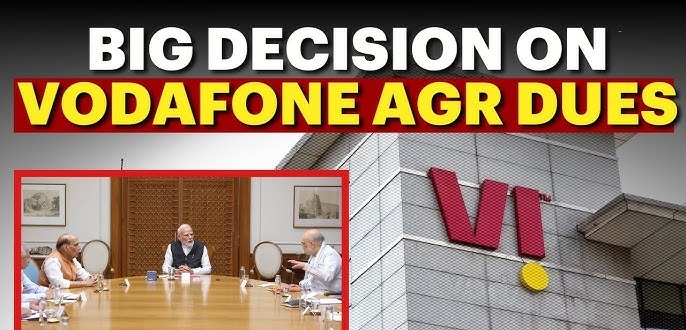K.S. Gupta, J.@mdashIn this petition u/s 482, Cr.P.C. the petitioner-accused seeks setting aside of the order dated 17th November, 1999 and quashing of FIR No. 56/96 and the proceedings emanating there from, pending before a Special Judge, Delhi.
2. In short, the allegations made against the petitioner are that on a complaint made on 11th December, 1996 by one Raghunath, after observing legal formalities a trap was laid. Petitioner demanded Rs. 5,000/- by way of bribe money from said Raghunath in the presence of S. Natrajan, witness. After taking money from his left hand the petitioner put it on the dash board of his Maruti Van No. DL-3C-7818 wherefrom it was recovered by Ranjit Ekka, Inspector, Anti-Corruption Branch, Delhi. After registering FIR No. 56/96 under Sections 7/13 of the Prevention of Corruption Act, 1988 (for short ''the Act''), recording statements of PWs, collecting report from CFSL and obtaining sanction to prosecute dated 11th December, 1998 from General Manager (D & PR), SBI, a charge-sheet under the said provisions was submitted against the petitioner on 4th January, 1999.
3. In terms of aforesaid order dated 17th November, 1999, application seeking discharge was declined by the Special Judge seized of the case.
4. Submission advanced by Mr. R.M. Bagai for petitioner was mainly two-fold -- (i) investigation was conducted in breach of the provision of Section 17 of the Act as it was not done by a duly authorised police officer and (ii) Sanctioning Authority did not apply its mind while according the sanction to prosecute petitioner dated 11th December, 1998. Elaborating the submission, it was pointed out that neither the representation(s) made by petitioner against grant of sanction to prosecute nor enquiry report sent by CBI to the bank was considered by the Sanctioning Authority. My attention was also drawn to the sanction order dated 11th December, 1998 wherein it was not specifically mentioned that representation(s) and/or report sent by CBI were taken note of by the Sanctioning Authority at the time of making the said sanction order. Reliance was placed on the decisions in
5. Coming to first limb of submission, in the reply filed to the petition by State, it is stated that there had been a Notification No. F. 12(7).86-H.P. II dated 31st July, 1986 by the Administrator of Delhi ever since the Anti-Corruption Branch came into existence in the National Capital Territory of Delhi authorising the Inspector of Ac branch to investigate cases under the Act. Non-issuance of Notification after the Act came into force, was only a technical flaw which was rectified vide Notification No. F.1(1)/99-DOV/1555-1561 dated 15th March, 1999. Copies of both these Notifications have been filed by way of Annexures I and II Along with the reply. To be noted that in terms of Notification dated 31st July, 1986, Anti-Corruption Branch, Delhi Administration at Tis Hazari, Delhi, was notified as a Police Station for the offences relating to illegal gratification under Sections 161, 162, 163, 164, 165, 165A, IPC as also under Prevention of Corruption Act, 1947 and attempts, abetments and conspiracies in relation to or in connection with aforesaid offences and any other offence committed in the course of same transaction arising out of same set of facts. In terms of Notification dated 15th March, 1999, Inspectors of Police working in Anti-Corruption Branch, Government of NCT of Delhi were authorised to investigate offences punishable under the Act without the order of a Metropolitan Magistrate and arrest without a warrant in whole of National Capital Territory of Delhi. At this stage, reference to the provision of said Section 17 of the Act has become necessary and the same provides thus:
"Notwithstanding anything contained in the Code of Criminal Procedure, 1973 (2 of 1974), no police officer below the rank-
(a) in the case of the Delhi Special Police Establishment, of an Inspector of Police;
(b) in the metropolitan areas of Bombay, Calcutta, Madras and Ahmedabad and in any other metropolitan area notified as such under Sub-section (1) of Section 8 of the Code of Criminal Procedure, 1973 (2 of 1974), of an Assistant Commissioner of Police;
(c) elsewhere, of a Deputy Superintendent of Police or a police officer of equivalent rank,
shall investigate any offence punishable under this Act without the order of a Metropolitan Magistrate or a Magistrate of the First Class, as the case may be, or make any arrest Therefore without a warrant:
Provided that if a police officer not below the rank of an Inspector of Police is authorised by the State Government in this behalf by general or special order, he may also investigate any such offence without the order of a Metropolitan Magistrate or a Magistrate of the First Class, as the case may be, or make arrest Therefore without a warrant:
Provided further that an offence referred to in Clause (e) of Sub-section (1) of Section 13 shall not be investigated without the order of a police officer not below the rank of a Superintendent of Police."
6. Obviously, in present case the investigation was to be done by an Assistant Commissioner of Police but it was conducted by Inspector(s) of Anti-Corruption Branch who happened to be below the rank of ACP. To be only noticed that said Notification dated 15th March, 1999 came to be issued after the filing of charge-sheet in the first week of January, 1999. Thus, the question which falls for consideration is whether trial of petitioner following upon an investigation in contravention of said provision of Section 17 is legal/illegal. Similar point arose for determination in
"The question then requires to be considered whether and to what extent the trial which follows such investigation is vitiated. Now, trial follows cognizance and cognizance is preceded by investigation. This is undoubtedly the basic scheme of the Code in respect of cognizable cases. But it does not necessarily follow that an invalid investigation nullifies the cognizance or trial based thereon. Here we are not concerned with the effect of the breach of a mandatory provision regulating the competence or procedure of the Court as regards cognizance or trial. It is only with reference to such a branch that the question as to whether it constitutes an illegality vitiating the proceedings or a mere irregularity arises.
A defect or illegality in investigation, however, serious, has no direct bearing on the competence or the procedure relating to cognizance or trial. No doubt a police report which results from an investigation is provided in Section 190, Cr.P.C. as the material on which cognizance is taken. But it cannot be maintained that a valid and legal police report is the foundation of the jurisdiction of the Court to take cognizance. Section 190, Cr.P.C. is one out of a group of sections under the heading "Conditions requisite for initiation of proceedings". The language of this section is in marked contrast with that of the other sections of the group under the same heading, i.e. Sections 193 and 195 to 199.
These latter sections regulate the competence of the Court and bar its jurisdiction in certain cases excepting in compliance therewith. But Section 190 does not. While no doubt, in one sense, Clauses (a), (b) and (c) of Section 190(1) are conditions requisite for taking of cognizance, it is not possible to say that cognizance on an invalid police report is prohibited and is, Therefore, a nullity. Such an invalid report may still fall either under Clause (a) or (b) of Section 190(1), (whether it is the one or the other we need not pause to consider) and in any case cognizance so taken is only in the nature of error in a proceeding antecedent to the trial. To such a situation Section 537, Cr.P.C. which is in the following terms is attracted :
"Subject to the provisions hereinbefore contained, no finding, sentence or order passed by a Court of competent jurisdiction shall be reversed or altered on appeal or revision on account of any error, omission or irregularity in the complaint, summons, warrant, charge, proclamation, order, judgment or other proceedings before or during trial or in any enquiry or other proceedings under this Code, unless such error, omission or irregularity, has in fact occasioned a failure of justice."
If, Therefore, cognizance is in fact taken, on a police report vitiated by the breach of a mandatory provision relating to investigation, there can be no doubt that the result of the trial which follows it cannot be set aside unless the illegality in the investigation can be shown to have brought about a miscarriage of justice. That an illegality committed in the course of investigation does not affect the competence and the jurisdiction of the Court for trial is well settled as appears from the case in Prabhu v. Emperor AIR 1944 PC 7 and Lumbhardar Zutshi v. The King AIR 1950 PC 26.
These no doubt relate to the illegality of arrest in the course of investigation while we are concerned in the present case with the illegality with reference to the machinery for the collection of the evidence. This distinction may have a bearing on the question of prejudice or miscarriage of justice, but both the cases clearly show that invalidity of the investigation is no relation to the competence of the Court. We are, Therefore, clearly also, of the opinion that where the cognizance of the case has in fact been taken and the case has proceeded to termination, the Invalidity of the precedent investigation does not vitiate the result, unless miscarriage of justice been caused thereby."
7. Charge is yet to be framed against the petitioner. Applying the ratio in H.N. Rishbud''s case it will be open to the petitioner to claim acquittal on the ground of investigation having not been conducted by duly authorised police officer(s) on his showing at the conclusion of trial that miscarriage of justice has been caused thereby but not at this stage.
8. This brings me to second limb of submission referred to above. Copy of report sent by CBI to Chief Vigilance Officer, SBI, Parliament Street together with covering letter dated 8/9th September, 1998 is placed at pages 84 to 87 on the file. Bare perusal thereof would reveal that it did not pertain to the incident in question dated 11th December, 1996. Further, pleas raised in the representation(s) made against grant of sanction to prosecute, are in the nature of defense which could be examined only by the Special Judge and not the Sanctioning Authority. To be noted that above grounds seem to have not been taken by the petitioner before the Special Judge as is manifest from aforesaid order dated 17th November, 1999. Aforementioned decisions except Mubarak Ali''s case (supra) were rendered after finding of guilt had been recorded and these have no applicability to the facts of this case. From foregoing discussion, it must follow that petition deserves to be dismissed being without any substance.
9. The petition is, Therefore, dismissed with the direction that the Special Judge will dispose of the case within a period of 6 months as it relates to the year 1996.
10. Petitioner is directed to appear before the said Court on 5th August, 2002.

